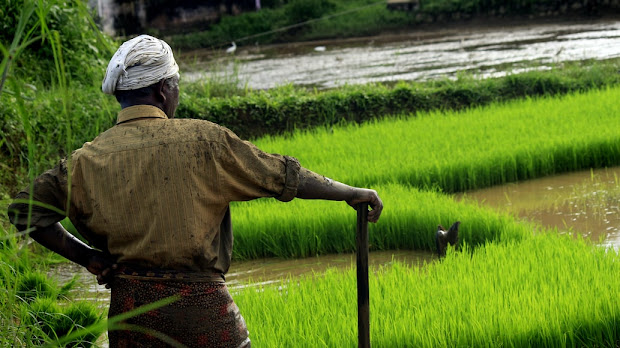How AI is changing India’s farming sector
Twenty percent of India’s GDP comes from agriculture (services sector contributes 54% and industry, 26%). Moreover, more than 40% of India’s workforce is employed in farming.
For a sector so significant to a country, are we satisfactorily using technology to help farmers improve productivity, maintain quality or mitigate the risks that come with unpredictable weather?
We all work, and live to put food on the table. But the journey from the farm to the table is long, arduous, and fraught with risks. Only about 35% of our farmlands are irrigated, which means the overwhelming swathes of rural India have to fervently pray for inclement weather.
If we could calculate how much water is needed to irrigate so many acres of paddy or wheat or sorghum, we could consider replacing water-intensive crops like rice and wheat, with millets. If we could use technology to map out drought-prone areas, we could consider growing hardy plants like cowpea and black-eyed pea that grow better in less water.
Controlling irrigation to certain times can also better a crop. Watermelons and tomatoes that grow deep roots thrive post-summer by sucking deep water tables. If we had the technology to determine the quality of the soil, underground water tables, or river systems, farmers could plan their sowing and harvesting.
This is precisely what CropIn’s AI and ML-based platform SmartFarm and SmartRisk do. Once a farm is geotagged, these two platforms help the farmer with details like water stress, nitrogen deficiency, or disease by looking at the conditions. It uses real-time satellite and weather-based advisory to estimate crop yield and forewarn pest attacks.
Also, with the capacity to manage over one million farmers on its platform it can help connect farmers with a widespread network of stakeholders for finance, credit, equipment, or just advice.
Starting with one customer in 2012 today, after several makeovers from the original prototype they are being used across 52 developing countries. As part of a Public-Private Partnership, the government chose CropIn to advise farmers in Madhubani and Gaya. The result was an increase in yield from 30 to 37%.
CropIn is currently hiring for Data Scientist, Senior Data Engineer, and Data Scientist for Social Good. Need help with AI and ML courses, drop us a mail at contact@infyni.com.
Author: Anjana Das




Leave feedback about this